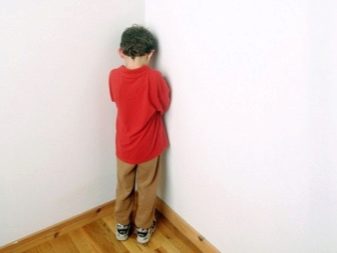There are no fearless people in the world who fear nothing. If a person suddenly becomes so, he will die, because he loses his prudence, caution, ability to critically assess what is happening around. But sometimes our fears significantly complicate our lives, and then the question arises: how to cope with the manifestations of this strong primitive emotion?
Cause and psychology of fear
Fear is the basic innate emotion of the human body. According to some information, even a fetus in the mother's womb before its birth is able to experience fear, and this allows us to assert with a clear conscience that the feeling of fear was created by nature is not accidental. Thanks to him, humanity survives, fear makes a person more cautious, prudent, saves his life in dangerous situations. Thanks to fear, people have come up with a lot of useful inventions that increase the safety and comfort of our daily lives.
The feeling of fear triggers a lot of invisible physiological processes that instantly mobilize the human body, causing it to act and think faster, move more actively, and increase strength and speed. But at the same time, sometimes fears become an obsessive state. And then they are called phobias. If a healthy reaction is a fright in connection with a specific threat, then a pathological fear is an irrational horror that the person cannot explain himself.
As a rule, we all fear something, and this is genetically determined, inherited from our ancestors. For example, the fear of darkness is inherent in almost all children and at least 10% of adults. It is just as normal to be afraid of heights, depth, open fire, death. A healthy fear makes a person stronger, after the threat has passed, he quickly passes and the emotional state becomes even.
Pathological fear can occur in certain situations for a specific person, and it does not mobilize, but makes a person vulnerable: in a panic attack, no one can make decisions, no one is able to become stronger.
Fear binds, causes palpable physical symptoms - dizziness, nausea, tremor, changes in blood pressure, and sometimes fainting, involuntary defecation or urination. In a panic attack, a phobic person is not adequate in principle.
Need I say that pathological fear makes a person subordinate, he dictates his own conditions. A person begins to diligently avoid objects and situations that cause panic, and sometimes for this he has to change the whole way of his life. Judge for yourself: people with claustrophobia (fear of confined spaces) walk even to the upper floors of multi-storey buildings, just to not be in the atmosphere of an elevator car, and people with social phobia sometimes refuse to leave the house, go to the store, go to work, go into public transport they become prisoners of their own fear.
With tripofobii, people scare cluster holes, and a panic attack can occur from one type of dishwashing sponge or piece of cheese, and a parrez prevents a person from going to the toilet when needed, if he is in a public place, the fear of a public toilet simply prevents him from releasing bladder.
Most of us have normal healthy fears, or rather excitement, anxiety, usually - before important events, the result of which we cannot predict exactly (before an operation, exam, interview). Such experiences do not deprive us in general of adequacy, but can interfere with sleep and sleep properly, otherwise they do not cause significant harm. It so happened that people tend to be afraid of the unknown, and the upcoming event is shrouded in it.
Pathological fears, even on the threshold of an event, significantly worsen the quality of life. - FOBs on the threshold of the operation can be very anxious, on the verge of anxiety disorder, and when confronted with a frightening object, they lose all control over themselves.
To understand how to defeat fear, you need to be clear about the laws it develops:
- in the central region (limbic system) of the brain, the amygdala is activated;
- the danger signal (true or fictional) is processed by the amygdala and the process is launched, which is called “hit or run”;
- since both running and fighting require strength, the brain in a split second starts the process of total mobilization - the bloodstream is more directed to the muscles, the outflow of blood from the internal organs and skin occurs;
- hair on arms and legs stand on end (nature created this reflex in nature to intimidate enemies);
- the work of the sweat glands is activated (apparently, also to intimidate enemies, but by the smell), the body temperature decreases;
- the adrenal cortex produces a large amount of the hormone adrenaline, which enters the bloodstream and immediately leads to a decrease in the depth of breathing, heart palpitations and dilated pupils;
- the skin turns pale, the production of sex hormones drops sharply, there is a painful sensation in the abdomen;
- mouth dry, it becomes difficult to swallow.
If the fear is healthy, then after analyzing the situation and the action (run or beat) the body's work is restored quickly. In the case of panic fear (phobias), a person may lose consciousness, balance, self-control in most cases is impossible.
Thus, the main cause of our fear is our nature, our own brain and those ancient survival programs (the instinct of self-preservation) that are embedded in it. But not every fear turns into a form of mental disorder, and here's why. The likelihood that phobias will occur is increased if:
- the child is raised in an authoritarian family, where he is deprived of the right to vote, such children do not know how to make decisions;
- the child grows up in an atmosphere of hyper-care, and in this case, the child also does not know how to make decisions, but he is also afraid of the world outside the window (parents carefully from childhood suggest that he is extremely dangerous);
- child do not pay attention he has no one to share his fears (the principle of the cartoon about the kitten Gave “let's be afraid together” is very important in childhood!);
- the child is exposed to terrible situations for him, punishments (put in a dark corner, closed in a closet);
- scare the child deliberately - “Babai will come,” “you will get sick of it, you will die,” and so on.
Fear does not appear only in the presence of an obvious threat. It can be a signal of a previous experience (if a person was bitten by a dog, he is more likely to be afraid of dogs), and fear can be a reason for an unsurpassed experience (I am afraid of poisonous snakes, although I have never encountered them before). Sometimes fear is imposed on us from outside, and here you have to say “thank you” to television, which often paints about terror, murder, medical errors, dangerous diseases that spread quickly), cinema with his horror films and thrillers, books and “friendly” acquaintances who are always ready to tell the "terrible story" from the life of his or his friends.
In order to understand what causes your fear exactly, you need not only to remember your childhood, your parents, their educational methods, but also to soberly assess who you are. It has been proven that people with subtle mental organization, impressionable, vulnerable, shy, experiencing certain difficulties in communicating and experiencing them now, single people are more susceptible to fears.
Of course, you cannot change the type of organization of the nervous system, but even if all the described characteristics are about you, you should not think that fear cannot be defeated.
How to cope with the symptoms yourself?
Before answering this question, you need to clearly understand for yourself what fear you are dealing with. If this is a healthy defense mechanism - it is impossible to defeat it, and it is not necessary, you cannot survive without it. If we are talking about pathological fear (a phobia, a state on the verge of a phobia), then it is almost impossible to overcome such fear on your own — you need the help of a specialist (psychologist, psychotherapist). In the battle with your fear, you will need the main weapon - a clear understanding that you need to fight not with emotion, but with the reasons that caused it.
A specialist is needed to determine these causes as accurately as possible. Attempts to independently combat the manifestations (symptoms) without analyzing the causes and correction are a waste of time. You can attend the trainings of fashionable coaches as much as you like, study meditation, read books from the category of “100 tips - how to gain courage”. But without establishing the root causes of your fear of all this will be useless. Fear will surely return as soon as circumstances and situations arise, similar to those that initially caused panic.
If your fear is not accompanied by severe panic attacks, you can try to search for the causes yourself. In a calm state, remember as many events from childhood as possible related to possible situations in which you saw, heard, perceived a frightening object. Are you afraid to ride the subway? Maybe in childhood you got lost there? Or watched a disaster film in which people died in the subway? Remember how you were raised, how often did you feel fears in childhood and adolescence?
Inside you can find a lot of answers to a variety of questions, you only need to accurately and specifically ask these questions.
Next, you need to assess the reality - in which situations often begins the attack of fear that this precedes? Does fear cause a particular object or are you afraid of something that you cannot even describe in words?
Having identified the object of fear (in our case it is the metro), the cause of fear is a negative experience related to the subway, an incident or a general impression of the film, it's time to start changing the settings to the correct ones. Start gradually to note the positive side of this type of transport - speed, safety, the opportunity during the trip to meet interesting people or just to spend time on the way behind the book. It should be actually auto-training.
Then move to a gradual immersion in the metro environment. Today, stay at the station door. Tomorrow, go in and stay in the lobby. Be sure to note that nothing terrible happens. On the third day, you can buy a ticket and go downstairs, and then try to get into the car and drive through the station or another. So you do not even struggle with fear, but teach your body to it, give it fear in moderation.
The danger with which you deal every day is depreciated and perceived less acutely. Notice how quickly people get used to the situation in a war or in a natural disaster zone. The same effect can be realized and you. If initially the fear is quite strong, enlist the support of a loved one, comrade, relative - let him stand in the subway along with you (again, back to the cartoon principle “let's be afraid together”).
A similar method can be used to any frightening circumstance or object. It is very important not to avoid, but to face fear. It was not for nothing that the teachers advised samurai. Avoiding only exacerbates fear.But because the advice like “afraid of the metro - move by bus” is harmful and dangerous, although in the soul for everyone who is afraid they, of course, find a lively response and approval.
In the process of "getting used to" fear, internal adaptation to it, You will need some practical tips that will help you quickly cope with expressions of emotion if it suddenly catches you at any stage of your struggle.
- Act proactively. An attack of obsessive fear usually does not begin spontaneously, having observed yourself, you will find some “precursors” - anxiety, tremor, weakness, etc. Having felt these actions, try to switch your attention to something positive. To do this, you can have and carry with you a small talisman (an item that is associated with a pleasant event, a person). Hold it, look at it, try to reproduce as accurately as possible the memories of the day when you received this item, the appearance of the person who presented it to you or was near. This will help reduce anxiety, because you will give the brain another task.
- Pain to help. The pain impulse is able to instantly switch your brain to protection mode, it will begin to solve the current “problem”, and the development of fear will be suspended. Of course, we do not call for maiming and self-mutilation. It is enough to wear a thin pharmacy gum on your wrist, which can be pulled off and released at a terrible moment. You can also pinch yourself.
- Learn to relax. If the situation allows, then at the first signs of impending fear sit comfortably, take a free posture. Do not cross your arms and legs, feel how you inhale and exhale. If necessary, unbutton the shirt collar, loosen the belt. Arbitrarily strain individual muscle groups (for example, buttocks or legs), hold for about five minutes and relax. Try to do this several times. Master some basic exercises of breathing exercises - also useful.
Important! With pathological fear with a panic attack, the method does not work, because the behavior becomes uncontrollable.
- Look at the details. If fear inevitably approaches, try to examine it in detail, focus on individual elements. Consciously pay attention to what you see around, how it looks, what color it is, what it smells like. In the case of the metro, consider people; try to determine their age and profession by appearance. Listen to their conversations. This simple process will help to distract. And inhaling the smells of the metro will help you quickly adapt to fear. The mathematical score helps very well - count the people in the car, try counting the number of stations in the metro scheme, count the women, men, and children separately.
- Drink water, put a lollipop in your mouth.. They can take with you, leaving the house. This will help switch the body from mobilization to food digestion. Use this method only if you do not have panic attacks with loss of consciousness.
Increase your self-esteem - it is the understated level that most often appears in the case histories of patients with phobias. Sign up for courses, start hiking, communicate with other people, do not withdraw into yourself.
Ways to overcome phobias with the help of specialists
All the above methods, alas, are not suitable in the case of phobias. If a person suffers from irrational fear, then attacks of this nature cannot be controlled by him, and therefore it will be difficult to do something on his own. Fight with fear will help professionals who have many techniques and methods of assistance.
The teacher and parents
In the case of children's fears, an experienced teacher or educator can help, but on the condition that the fears began recently. Launched forms of phobias pedagogical methods are not treated. What can a teacher do? He can create an environment for the child in which there will be nothing frightening, and each new action and task will be spoken and prepared in advance. This will help reduce the high level of anxiety in the child. He will gradually begin to relax.
When this happens, the teacher will pay special attention to training the will and sense of duty of the child. Both of these feelings help to cope with fears in most cases.
A lot depends on parents and teachers. If the child is timid, it is very important for him to know that they are not laughing at him, but rather hedging him. Remember how we teach kids to take the first steps? We support the hand. And at some point, let go. What does a child do? He immediately falls, noticing that he is no longer being held. In the same way, children behave while learning to ride a bike, skate.
But if at this stage to convince the child that he had not been held before, he was driving himself, then we can assume that the training ended in complete success. That is, the child simply has to believe that he can. And then the fear recedes.
Psychotherapist, psychiatrist
There are various methods of correction of phobias, and today psychotherapeutic methods are the most effective. A well-established method of immersion "in vivo", in which a person, in fact, has to undergo treatment with a shock effect.
Immersion in an atmosphere of fear, metered, regular, carried out under the supervision of a specialist, helps not to overcome the horror, but to learn to coexist with it peacefully and quietly. The method is based on the observations of specialists who studied adaptation mechanisms in people in the zones of combat actions and disasters. It turned out that gradually you can get used to fear, and at the same time its intensity and strength will decline. The brain will cease to perceive danger as an emergency, and will begin to treat it as an everyday occurrence.
In practice, this can be done in different ways. It all depends on the individual mental characteristics of the person. One needs to be placed in a serpentarium so that it gets used to snakes, and the other one needs only to visit the pet shop and examine creeping reptiles from a safe distance. The fear of water can be overcome by swimming and diving lessons from an experienced specialist in these areas, and the fear of darkness can be overcome. any interesting activities that are possible only in the dark (for example, drawing light handles or viewing filmstrips).
The effectiveness of the in vivo method is about 40%, which means that four out of ten fob method helps to cope with a mental disorder.
The most common way to help with irrational fears in psychiatry is cognitive-behavioral therapy. It includes several stages. At first, the doctor must discover all possible situations and circumstances of the occurrence of panic, as well as the reasons that led to the development of a phobia. This is done by interviewing, testing. As a result, an individual list of “dangerous” situations will be compiled.
Next, the specialist proceeds to the replacement of the incorrect mental installations of the patient to the correct ones. This is done through conversations, neuro-linguistic programming, hypnosis sessions. The task is to eliminate the installation that makes a person believe that tiny kittens can be deadly, that bats and spiders threaten human life, that in the dark there can be a danger that society is hostile.
The right attitudes, gradually becoming their own, solve the problem of the irrationality of fear.. Man now not only understands that fearing a spider is stupid, but sees in a spider’s life a great benefit for the planet. He admits without horror the fact of the existence of the spider and is ready to put up with him. Of course, no one forces to love a spider, this is not required. But the panic attacks, with which each meeting with arthropods previously proceeded, will no longer be.
At the final stage of cognitive-behavioral psychotherapy, a gradual immersion into dangerous situations begins. From the compiled list, first take those that initially caused the smallest anxiety and sorted out all the circumstances according to the increasing assessment of the scale of anxiety. In other words, the most severe nightmares that caused sacred horror and shock before the start of treatment, will begin to translate into reality the latter.
The specialist observes the patient's reactions, conducts interim conversations, discusses what the person has experienced, and as necessary increases or decreases the stress load.
Not all situations can be experienced in reality. For example, a person is afraid of space and stars or aliens. Do not send it to the ISS, so that he personally convinced of the absence of green men in orbit!
In this case, specialists can apply hypnosuggestive techniques in which the situation is thought up by a doctor and transferred to the patient under hypnosis. The person believes, being in a trance, that at the moment is present on the ISS or on Mars, that he has met an alien creature. He can communicate with the doctor, transfer to him everything he sees, feels. So is the immersion and adaptation, and ultimately - the depreciation of fear as such.
Sometimes psychotherapy is supplemented with medication, but not so often. The fact is that there is no specific cure for fear. Tranquilizers only help to suppress a panic attack, they do not cure the condition and its causes, and such drugs can also cause addiction. Antidepressants help with the concomitant state of depression (people with phobias are very susceptible to this scourge).
For the normalization of sleep can be recommended sleeping pills, and doctors often recommend sedatives that will help calm down.
But not every case of phobia needs to apply the achievements of pharmacology. Moreover, we can not talk about a separate treatment with pills. Without psychotherapy, no pills and injections for phobias will help.
Useful advice of a psychologist
The vast majority of pathological fears that do not allow us to live fully and make you dream of getting rid of them, are formed in childhood. And because psychologists recommend parents to pay special attention to this issue, because we can fully grow a person with a normal healthy level of fear of something. To do this, try to create an atmosphere of mutual trust in your home and family from a very early age - fears become less when they are spoken and discussed.
- Do not mock the fear of the child, no matter how ridiculous it may seem to you. If the kid claims that Buka lives in the closet, it means that in his perception of the world this is true. Listen carefully and think up a way to defeat Buku (it can be anything from a fully eaten dinner to a ritual with a recital of a rhyme before going to bed).
- Always find time for a child. Caress and attention does not happen much. This is his "safety cable", which will help to cope with any difficulties, including with fear.
- Do not provoke fears spontaneously - do not invent scary stories about naughty kids, who are taken by the forest monster, do not teach a child to swim, pushing from the side or pier in spite of protests.
- Defeat your own adult fears. Often children inherit our fears only because they consider the worldview of their parents to be the only true one. A mother who is afraid of mice is more likely to have a child who will also be afraid of mice. And genes have nothing to do with it. Just a child from childhood will see the mother's reaction to the mouse and be sure to copy it.
Experts do not advise to scold and punish a child for his fears, to ignore them, considering them frivolous. Also, do not take the child to the funeral until adolescence, show him horror films.
You can not link the death of someone close to the disease, even if the cause of death was a disease - in the mind of the child a clear link will be formed between the concept of "sick" and the concept of "die." This increases anxiety with every cold or illness of a family member. It is very important not to refuse the help of psychologists, psychotherapists, if you yourself can not cope with the problem yourself or the child.
Fear therapy is a difficult area of psychotherapy, and you should not expect success on your own. Trust the task to a specialist. The sooner you do this, the better.



























